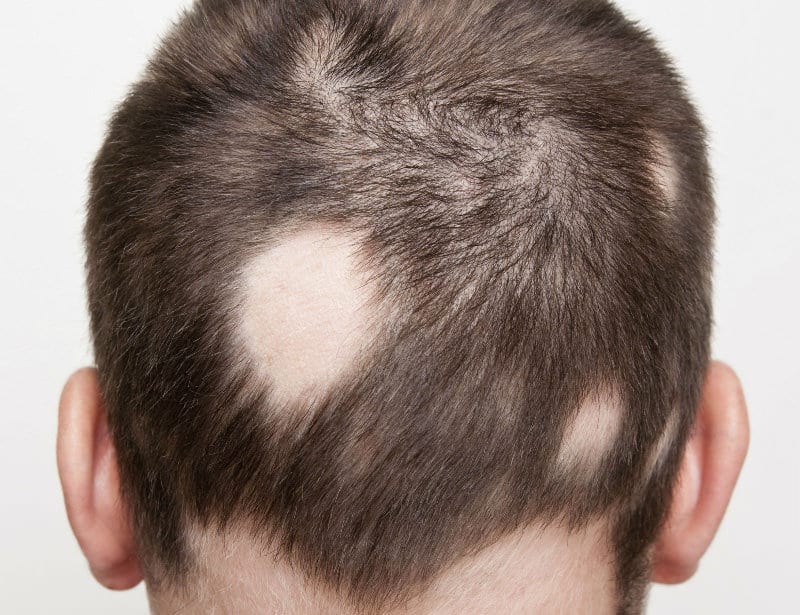Worried about unexplained hair thinning or bald patches? Can Syphilis Cause Hair Loss, particularly during its secondary stage, and it’s often misdiagnosed due to its resemblance to other scalp conditions.
In this medically reviewed guide, you’ll learn how syphilis affects the scalp, how to recognize syphilitic alopecia, and what treatments can help you recover your health and hair. Backed by expert insights, this article helps you make informed decisions with clarity and confidence.
What Is Syphilis? A Brief Overview

Syphilis is a sexually transmitted infection (STI) caused by the bacterium Treponema pallidum. It progresses in stages and may go unnoticed in its early phases if left untreated.
Stages of Syphilis: Primary, Secondary, Latent, and Tertiary
- Primary Stage: Painless sore (chancre) at the site of infection
- Secondary Stage: Skin rashes, mucous lesions, and systemic symptoms
- Latent Stage: No symptoms, but infection is still present
- Tertiary Stage: Can lead to severe damage to organs, including the brain and heart
How Syphilis Spreads
- Direct contact with a syphilitic sore during vaginal, anal, or oral sex
- It can also be transmitted from mother to child during pregnancy
Who Is at Risk?
- Sexually active individuals, especially those with multiple partners
- Men who have sex with men (MSM)
- Individuals with HIV or other STIs
Can Syphilis Cause Hair Loss?
Yes, syphilis can cause hair loss, typically during the secondary stage of infection. This symptom is known as syphilitic alopecia.
What Is Syphilitic Alopecia?
Syphilitic alopecia is hair loss associated with secondary syphilis. It may occur with or without other symptoms like rashes or sores.
Patterns of Hair Loss in Syphilis (Moth-Eaten vs. Diffuse)
- Moth-eaten Pattern: Patchy, irregular hair loss resembling chewed-up spots
- Diffuse Thinning: Uniform shedding across the scalp, less common
How Common Is Hair Loss in Syphilis?
Syphilitic alopecia is reported in up to 10–12% of patients with secondary syphilis, though underdiagnosis is common.
Why Does Syphilis Cause Hair Loss?
Impact of the Infection on Hair Follicles
The bacterium affects hair follicles by causing inflammation and disrupting the normal growth cycle.
Immune Response and Hair Shedding
Your body’s immune system responds aggressively to Treponema pallidum, sometimes attacking hair follicles and causing temporary shedding.
Delayed Diagnosis and Progression
Hair loss often occurs when syphilis remains undiagnosed or untreated for weeks or months. This delay increases systemic involvement.
How to Identify Syphilitic Hair Loss
Symptoms That Accompany Hair Loss
- Scalp patches with little inflammation
- Hair loss alongside rashes on palms, soles, or trunk
- Flu-like symptoms such as fever or sore throat
Differences from Other Hair Loss Conditions
| Condition | Appearance | Other Symptoms |
|---|---|---|
| Syphilitic Alopecia | Moth-eaten patches | Rash, sore throat, swollen lymph nodes |
| Alopecia Areata | Smooth round patches | Autoimmune history |
| Telogen Effluvium | Diffuse thinning | Recent stress/illness |
Diagnosis: How Is Syphilis-Related Hair Loss Confirmed?
Blood Tests
- VDRL (Venereal Disease Research Laboratory)
- RPR (Rapid Plasma Reagin)
- FTA-ABS (Fluorescent Treponemal Antibody Absorption)
These tests detect both active and past infections.
Physical Exam and Hair Loss Pattern Recognition
Clinicians look for classic patchy loss and accompanying systemic signs like mucous patches or lymphadenopathy.
When to See a Doctor or Dermatologist
Consult a dermatologist or infectious disease specialist if you have sudden, unexplained hair loss with any STI symptoms.
Treatment Options for Syphilitic Hair Loss
Antibiotic Therapy (Penicillin)
A single injection of benzathine penicillin G is the standard treatment for early-stage syphilis.
Will Hair Grow Back After Treatment?
In most cases, hair regrowth begins within weeks to a few months after successful antibiotic therapy.
Timeline for Hair Regrowth
| Week | Progress |
|---|---|
| 0 | Start of antibiotic therapy |
| 2–4 | Reduced shedding |
| 4–12 | Noticeable regrowth begins |
| 12+ | Continued thickening |
Supportive Hair Care & Supplements
- Biotin and Zinc: Support follicular recovery
- Gentle scalp care: Avoid harsh styling or chemical products
- Topical Minoxidil (optional): May support regrowth if prescribed
Can Hair Loss from Syphilis Be Permanent?
Risk of Scarring or Follicle Damage
Most cases are non-scarring, meaning follicles are not permanently damaged.
Early vs. Late Treatment Outcomes
- Early Treatment: Almost always results in full hair regrowth
- Delayed Treatment: In rare cases, hair follicles may be damaged, prolonging recovery
Preventing Hair Loss from Syphilis
Early Detection and Screening
Routine STI testing helps prevent complications like hair loss.
Safe Sex Practices
- Use condoms consistently
- Limit the number of sexual partners
- Regular screening for high-risk groups
Regular Follow-Ups After Treatment
Ensure successful treatment by checking follow-up blood titers (e.g., RPR titer every 3–6 months).
Expert Insights: What Dermatologists and Infectious Diseases When to Seek Medical Help
Red Flags That Require Immediate Attention
- Patchy or diffuse unexplained hair loss
- Rash on hands, feet, or trunk
- Painless sores in the genital or oral region
Which Specialist to Consult – Dermatologist or STD Specialist?
See a dermatologist for hair-specific treatment and regrowth support
Start with an STD specialist for diagnosis

FAQs About Syphilis and Hair Loss
Q1: Is hair loss a common symptom of syphilis?
Hair loss occurs in about 10–12% of secondary syphilis cases, often overlooked.
Q2: Can syphilis hair loss look like alopecia areata?
Yes. The patchy pattern is similar, but syphilitic alopecia often comes with systemic symptoms.
Q3: Will my hair grow back if I treat syphilis?
In most cases, yes. Hair begins to regrow within weeks after antibiotic treatment.
Q4: How long does it take for hair to regrow after treatment?
Hair regrowth typically starts within 4–6 weeks and may take 3–6 months for full recovery.
Q5: Can I still be contagious if I have hair loss but no other symptoms?
Yes. Syphilis can be transmitted even in asymptomatic stages. Testing is essential.
Take Your Next Step
If you’re experiencing patchy hair loss or suspect an underlying condition like syphilis, early action can make all the difference.
Book a consultation with Dr. Rana Irfan, ABHRS-certified hair restoration specialist in Islamabad, for complete diagnosis, testing, and recovery support.
